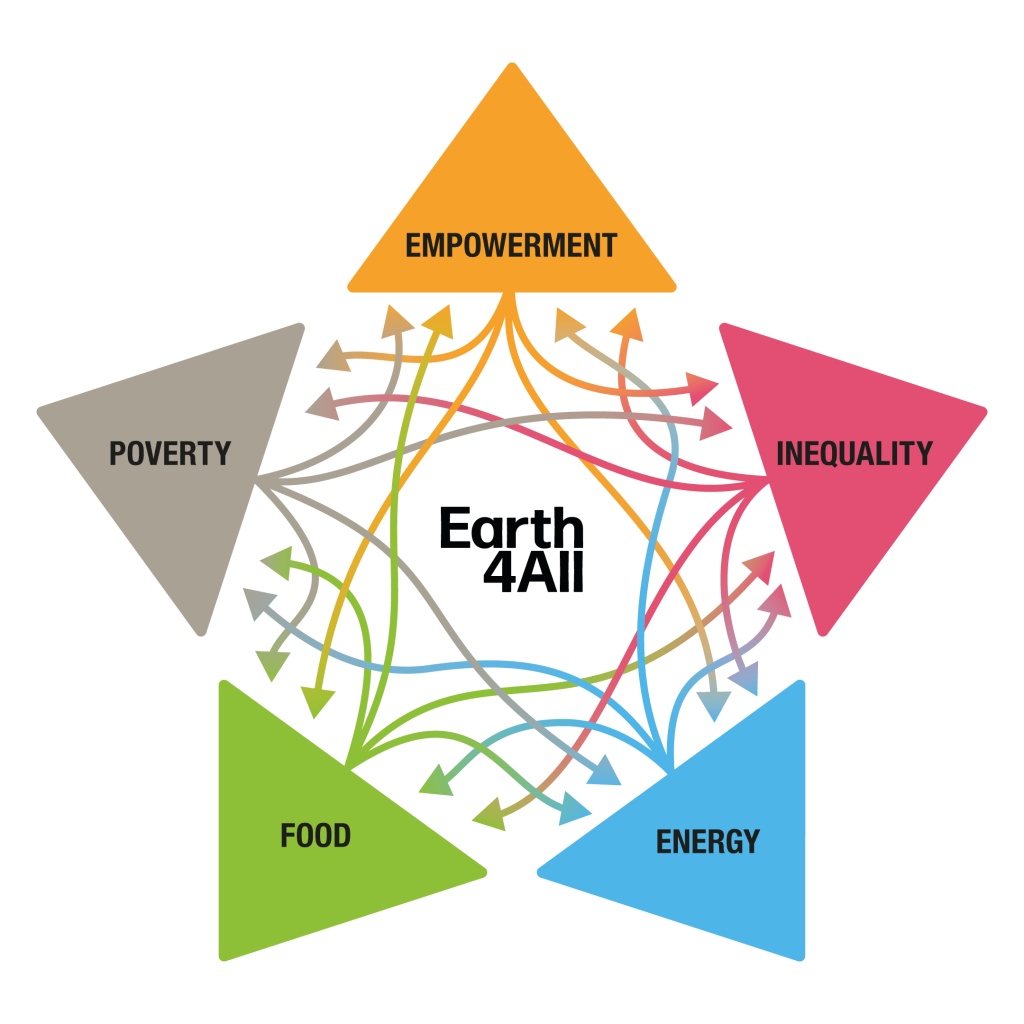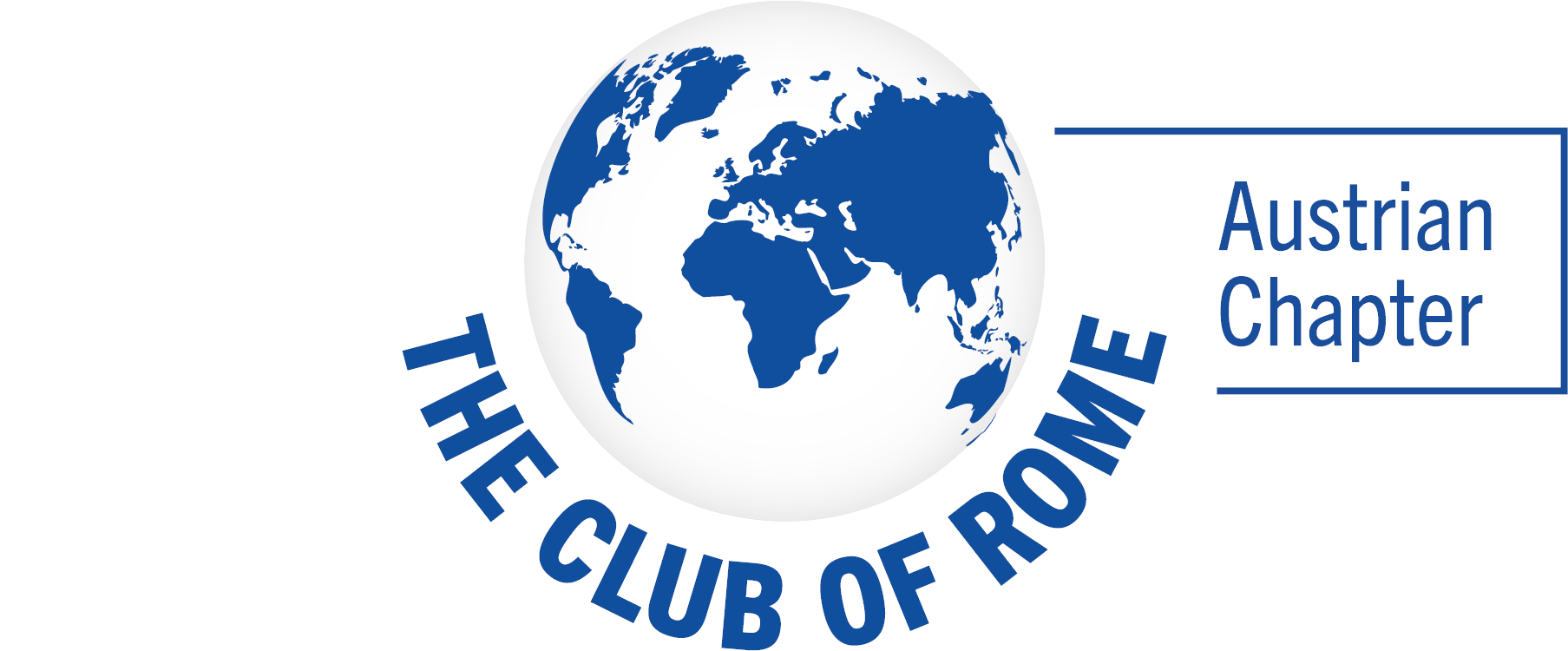September 6, 2022, by Dr. Martin Hoffmann (Secretary General of the Club of Rome – Austrian Chapter).
Today another report to the Club of Rome is available in bookstores and online: a survival guide for humanity – certainly urgently needed.
Project website: https://www.earth4all.life/
50 years after the publication of the first report to the Club of Rome 50 years ago “The Limits to Growth”, a group of international researchers* has written a new report. Convened by the Club of Rome, the Potsdam Institute for Climate Impact Research, the Stockholm Resilience Centre and the Norwegian Business School, two scenarios were studied and modeled: 1) Too little too late – “Too little too late” and 2) The great leap – “The great leap”. It turns out that it is possible. A secure and prosperous future for all people on this planet is possible and everyone can contribute.
German: https://www.oekom.de/buch/earth-for-all-9783962383879
We will present the book on 8.9.2022 at 14:00 at the Ars Electronica Festival.
Click here to go to the event.
To the livestream: https://ars.electronica.art/planetb/en/live/
Summary
The study identified 5 “extraordinary inflection points” that represent the minimum requirements that promote the well-being of all people while protecting the planet.

There is no one-size-fits-all approach to economic system change. Depending on the social and political context, there are different ways to achieve the five extraordinary upheavals. The actions taken in the United States and Canada to drive these upheavals will likely be very different from those taken in Africa, Europe, or Asia.
To accelerate change, governments should modernize our economic system and redefine what really matters in economic policy. All watersheds include a concrete target and possible measures for implementation (more details here):
Eradication of poverty
Extreme poverty has declined dramatically over the last fifty years. But nearly half the world still lives in poverty, living on less than $4 a day.
The old strategies to promote growth, based on energy from fossil fuels, are a dead end. New economic models for low-income countries are needed. New models can help address historic inequities and open the doors to unprecedented investments in clean energy, sustainable food, and sustainable cities.
Goal: GDP growth rate of at least 5% for low-income countries until GDP per person exceeds $15,000 per year.
Reduce inequality
In most regions of the world, inequality has grown from decade to decade. In many places, the 10% richest have more than 50% of national income. This is a recipe for deeply dysfunctional, polarized societies. We need a recipe for building cooperation and trust.
Goal: Reverse inequality, with the richest 10% receiving less than 40% of national income.
Empowering women
Gender equity is essential for a fair and just future and a stable planet. This is how we create fair and just societies. Societies where everyone feels valued function better today.
Goal: full gender equality in terms of agency, rights, resources, and power in law and in the workplace.
Transforming food systems
The last fifty years have seen an amazing turnaround in food security, and the number of hunger deaths has dropped dramatically. However, progress has come at a price.
The way we grow, transport, and consume food touches more planetary boundaries than anything else. Agriculture is one of the largest sources of greenhouse gas emissions. It is also the biggest cause of deforestation, biodiversity loss, and the creation of vast dead zones in our rivers, lakes, and oceans. Agriculture is also not working for people: 9% of the world’s population is severely food insecure, and 8% of global deaths are due to obesity. Our food systems need to be comprehensively transformed.
Goal: a regenerative, sustainable food system that works within planetary boundaries for all.
The energy transition
The energy system is at the beginning of the greatest upheaval in a century. Within a generation, most countries could achieve energy security for the first time. This brings many other benefits, from cleaner air and better health to zero emissions from fossil fuels.
The Paris Agreement’s goal of keeping global warming well below 2°C requires halving global greenhouse gas emissions in each decade starting in 2020 to reach near zero in the 2050s. Solutions to halve emissions in a decade are available, affordable, and can be implemented quickly. Crucially, we have reached the critical tipping point where renewable energy prices are comparable to or cheaper than fossil fuels. In sectors previously considered difficult to decarbonize, such as long-distance transport, shipping, or cement and steel production, there are now exciting new solutions. Urgent action is needed to implement these solutions.
Goal: net zero emissions by 2050
Improve our economic system
Let’s move beyond growth. People should be neutral about economic growth. It really depends on what grows. Consumption of many materials cannot continue to grow. And greenhouse gas emissions must be stopped. But revolutions in energy and food will drive economic growth. And low-income countries need to grow their economies.
Rather than focusing myopically on economic growth, policymakers should ask: Is the economy optimized for resilience? Does it improve the lives of the majority? Is it perceived as reasonably equitable? Does it protect our planet and the well-being of future generations? Does it help achieve the main goal of a state – to ensure the long-term security of its citizens? Are we measuring and valuing the right things?
Goal: Redefine what really matters in economic policy.
Do we have to wait another 50 years for our society to produce sufficient change? We hope not.
